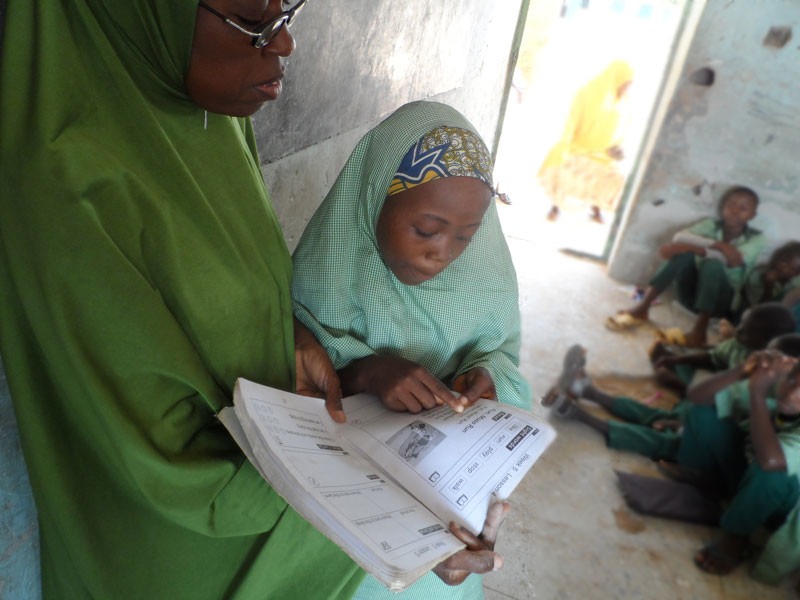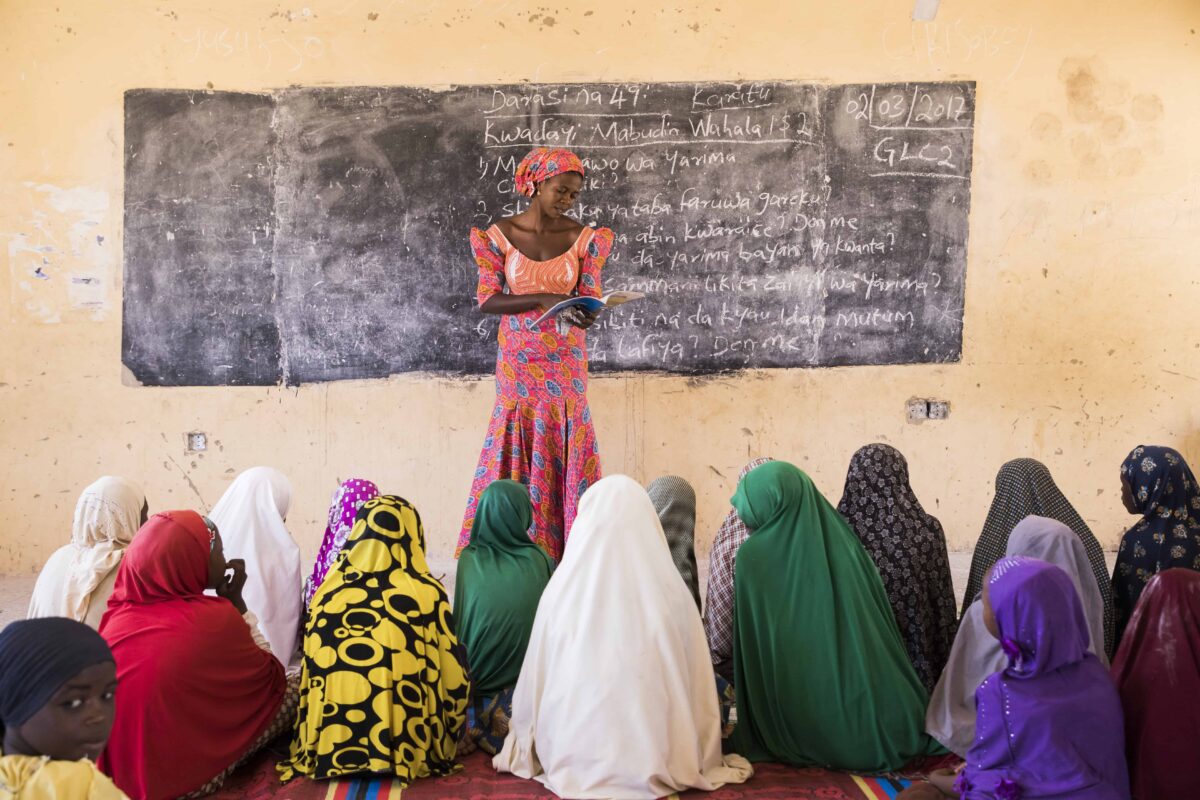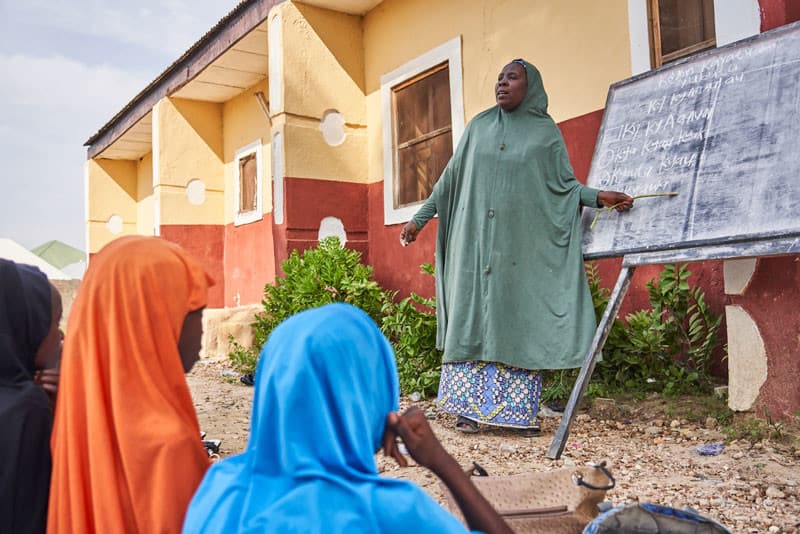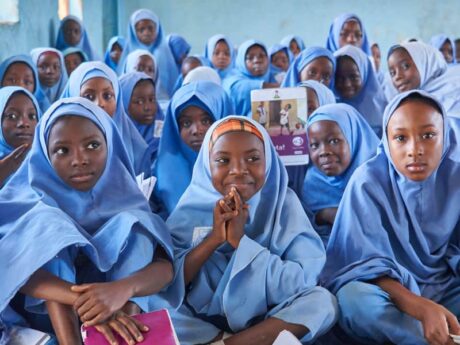Bauchi, NigériaEleven-year-old Zainab Auwal wants to be a doctor when she grows up. There aren’t many hospitals where she lives in Alkaleri local government area, and people must travel to the capital to access healthcare.
Zainab could not achieve her dream of practicing medicine by staying home to help her mother with household chores and only attending Islamic school. She begged her father to enroll her in school but he declined.
Many girls in Northern Nigeria are unable to access education, or they drop out of school at an early age due to a combination of cultural practices that encourage girls to stay at home or a lack of nearby educational facilities.
But Zainab was determined. When she heard about a non-formal learning center opened by the U.S. Agência para o Desenvolvimento Internacional Iniciativa de Educação do Norte Plus in her community, she approached her father again for permission to attend. This time he accepted when he learned she would spend only a few hours a week at the center and receive free textbooks.
“I was the first of nine children in my home to attend school,”ela diz.
Non-formal learning centers provide displaced or out-of-school children and youth with basic literacy and numeracy skills and psychosocial support in safe, supportive environments. Zainab studied these skills for nine months and took an exam at the end of the program that qualified her for admission into grade three in a formal school.
Em três anos, the Northern Education Initiative Plus project has provided abridged education programs to approximately 180,000 out-of-school-children like Zainab, incluindo mais de 73,000 garotas, and facilitated their mainstreaming into formal schools. To ensure children received quality instruction, the project has distributed up to 800,000 textbooks covering topics such as literacy, numeramento e habilidades para a vida.

After Zainab was admitted into the third grade in a formal school, she continued to benefit from the Northern Education Initiative Plus through its early grade reading program called Vamos ler! (Vamos ler! em Hauçá). Operating in formal schools, the reading program teaches children to read in Hausa in first grade and builds their skills to add English by second grade, ultimately transitioning to full English instruction in fourth grade.
For Zainab, going to school is a delight. Reading her books is even more fun.
“I love the stories in them. I cannot wait for my aunt to read with me when I get home,”ela diz.
Sobre 80 percent of children in grades two and three in Nigeria’s Bauchi and Sokoto states were not able to read a single word in Hausa or English, de acordo com um 2016 early grade reading baseline assessment conducted by the Northern Education Initiative Plus.
After two years of the project, um 2018 mid-line assessment showed a significant improvement in children’s ability to read. This was achieved through professional development for approximately 8,000 professores, the distribution of more than 4 million textbooks and mobilizing thousands of community groups to advocate for quality education.
It has been two years since Zainab asked her father to enroll her at the center. These days he is willing to do more than that.
“He was the one who brought me to school and he bought my uniform and books. He loves that I can now read books,” Zainab says.



